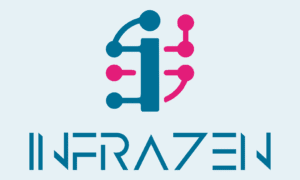
In today’s increasingly digital business landscape, data security has become an indispensable part of every industry, especially in sectors dealing with sensitive information. Accounting practices, being custodians of vital financial data, are not exempt from this. Protecting this data from cyber threats is paramount to maintaining client trust, upholding your practice’s reputation, and ensuring smooth operations. A well-versed understanding of potential vulnerabilities is key, along with deploying effective strategies to mitigate them. Moreover, a collaborative relationship with a reputable Managed Services Provider (MSP) can substantially strengthen your defence against these threats.
Identifying the Potential Vulnerabilities

Every journey towards fortifying defences starts with understanding the prevalent vulnerabilities.
1. Human Error
Human error, a common yet easily overlooked vulnerability, can be a contributing factor to data breaches. A simple mistake like misplaced documents, mistyped entries, or unintended sharing of sensitive data can have a ripple effect on your security.
Potential Consequences: Such slip-ups can lead to severe breaches, resulting in financial losses, non-compliance penalties, and even a hit on your practice’s credibility.
Remediation Tactics: The antidote to human error lies in regular, comprehensive training and stringent data handling policies. Foster a culture where data protection becomes second nature to your staff.
2. Insider Threats
Threats may originate from within your team. An aggrieved employee or a rogue player may misuse sensitive data, leak crucial information, or intentionally disrupt your systems.
Potential Consequences: Actions of this nature can result in severe data breaches, financial distress, and tarnishing of your practice’s reputation.
Remediation Tactics: Vigilance is key. Conducting regular background checks, implementing strict access controls, and tracking user activity can nip such threats in the bud. Cultivating an ethical organizational culture plays a significant role in mitigating such threats.
3. Phishing and Social Engineering Attacks
Cybercriminals often use deception as a weapon, tricking individuals into sharing sensitive information or breaking security protocols. This technique, phishing or social engineering, is a common threat.
Potential Consequences: These tactics can lead to unauthorized access to your systems, data theft, and financial loss.
Remediation Tactics: Arm your staff with the knowledge to identify and steer clear of such attacks through regular training. Employ technological measures such as spam filters, antivirus software, and firewalls for added protection.
4. Malware and Ransomware Attacks
Malicious software like malware or ransomware can stealthily infiltrate your systems, stealing, encrypting, or destroying your data, often leaving you in a state of disarray.
Potential Consequences: Beyond data loss, these attacks can hamper your day-to-day operations, lead to financial loss, and significantly damage your reputation.
Remediation Tactics: Ensuring your software and systems are updated regularly, having a reliable antivirus solution in place, and maintaining regular data backups can offer a robust line of defence against these threats.
5. Unsecured Networks or Devices
Data flowing over unsecured networks or stored on unprotected devices is like an open treasure chest for cyber pirates. It significantly increases the risk of cyber-attacks.
Potential Consequences: Data interception or theft can lead to breaches, financial losses, and lasting reputational damage.
Remediation Tactics: Secure your data transmission with VPNs, encrypt sensitive data, and implement strict BYOD (Bring Your Own Device) policies to prevent unauthorized access.
6. Out-of-date Software
Outdated software is often riddled with known security vulnerabilities, creating loopholes that cybercriminals can exploit.
Potential Consequences: Such exploits can lead to unauthorized system access, data theft, and financial loss.
Remediation Tactics: Staying ahead of the curve with robust patch management policies can ensure all your software is up-to-date and fortified against known vulnerabilities.
7. Third-Party Breaches
Using third-party software or services is common practice, but if these parties suffer a breach, your data might be exposed.
Potential Consequences: Data loss, financial losses, non-compliance penalties, and reputational damage are some of the potential repercussions.
Remediation Tactics: Choose your third-party providers wisely. Make sure they adhere to rigorous security standards and can offer robust data protection.
8. Lack of Data Backup and Recovery Plan
Without a data backup, a system failure or an attack could result in irreversible data loss. A lack of a recovery plan can prolong the system downtime, exacerbating the situation.
Potential Consequences: System downtime can lead to operational disruption, loss of business, and reputational damage.
Remediation Tactics: Implementing a reliable data backup strategy and a well-defined disaster recovery plan can keep you prepared for unforeseen circumstances.
9. Weak Access Controls and User Permissions
Lax management of user permissions can unintentionally expose sensitive data, increasing the risk of breaches.
Potential Consequences: Unauthorized data access can lead to data breaches, financial loss, and reputational damage.
Remediation Tactics: Implementing role-based access control (RBAC) can ensure that your team members access only the information they need to perform their duties, reducing the potential risk of data leakage.
10. Lack of Encryption
Unencrypted data, at rest or in transit, is more susceptible to theft or interception, providing an easy target for cyber thieves.
Potential Consequences: Data theft can lead to breaches, financial losses, and reputational damage.
Remediation Tactics: Implement encryption for data, both at rest and in transit, to build a wall against unauthorized access.
The Value of Partnering with an MSP

The task of managing these vulnerabilities can seem overwhelming. That’s where partnering with a trusted Managed Services Provider (MSP) can be a game-changer. MSPs bring specialized knowledge and expertise to your firm, providing a strong pillar of support for your cybersecurity needs. Here’s how an MSP can augment your data protection efforts:
- MSPs offer proactive support, continuously monitoring your systems for potential threats and acting swiftly to mitigate them.
- They ensure your systems and software are regularly updated, sealing off any security gaps.
- They implement stringent security measures, such as firewalls, encryption, and antivirus software, to create a robust defence against cyber threats.
- MSPs provide dependable data backup solutions and can assist in crafting a comprehensive disaster recovery plan, ensuring business continuity in case of disruptions.
- MSPs can conduct regular training sessions, keeping your staff informed about data security best practices and the latest threat landscape.
- Compliance with regulations is another area where MSPs can offer substantial assistance. They can help ensure your data handling and storage practices meet the necessary standards, saving you from potential penalties.
- By entrusting your IT management to an MSP, you free up time and resources to focus on your core accounting duties, while ensuring your data security is in capable hands.
Conclusion

As we navigate through the digital age, protecting sensitive data must be a top priority for every accounting practice. Recognizing potential vulnerabilities, implementing robust security measures, and partnering with a trusted MSP can significantly enhance your practice’s data security. Remember, in this constant battle against data vulnerabilities, your most robust defences are knowledge, preparedness, and a reliable partner.

